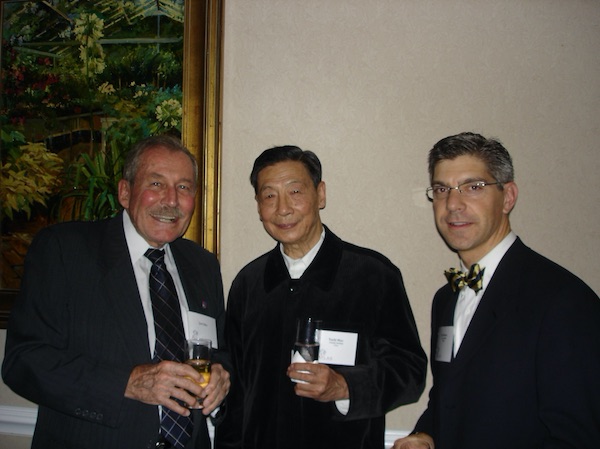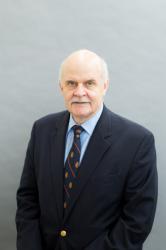I had the privilege of being close to Jon Basil Utley (1934-2020) for the last 25 years of his life. Even though we disagreed on a few topics, we always did it with a smile. It was more like a game between friendly tennis partners than a struggle to score political or intellectual points against each other.
Several years ago I read Odyssey of a Liberal, the autobiography of his mother, Freda Utley. I recommend the book to all who want to understand the evils of communism, but also to those who have had questions on Jon’s views and independence of thought. His mother did not go to church, but, as Jon wrote:
Like many English from the early twentieth century, [she] had been taught the Bible very well. She quoted it often when I was growing up. I loved several of Christ’s words she often quoted: “The truth shall set you free,” “Be not afraid,” and much from Ecclesiastes, her favorite Old Testament book.
Jon, like his mother, was not religious, but considered himself “a Christian follower of Spinoza.” He was never baptized. According to him, communism—the communism that he later learned not only imprisoned but also killed his father—made it very hard to believe in a just, much less merciful, God. Towards the end of his life he admitted that he rarely went to church and didn’t see himself as religious. “But maybe I am,” he reflected. When he prayed, it was almost only for his children or for the health of his friends. But he often thanked God for his wonderful life.
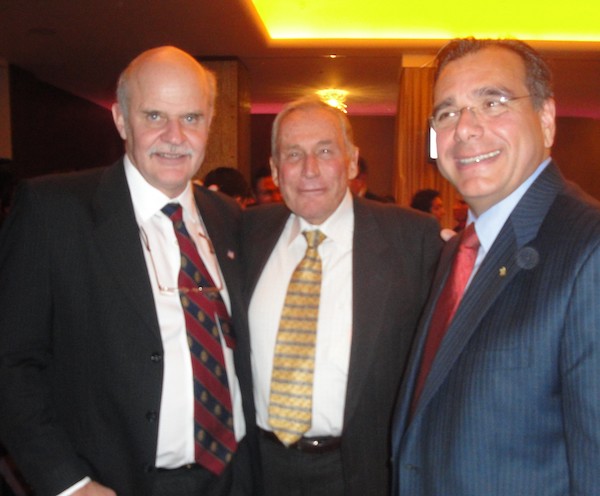
Given Jon’s passionate opposition to war, he grew very disappointed with a sector of evangelical Christians whom he viewed as trying to help God hasten His promised Second Coming and the destruction of most of the human race.
Jon wrote he could believe in a “fair God” Who “didn’t demand that humans grovel before him, nor tell them to believe unbelievable tales of magic.”
I also sort of believe in re-incarnation in that really evil souls are cast out into space while a very few can ascend to pass eternity in His presence. But not at all the Indian idea that man and animals can interchange in re-incarnation. I believe we have souls, which distinguishes us from all the other creatures on the Earth.
As a teenager, Jon wanted to be a fighter pilot. He did not have perfect vision, so he reckoned that God had other plans for him. But he wanted to fly, and he did.
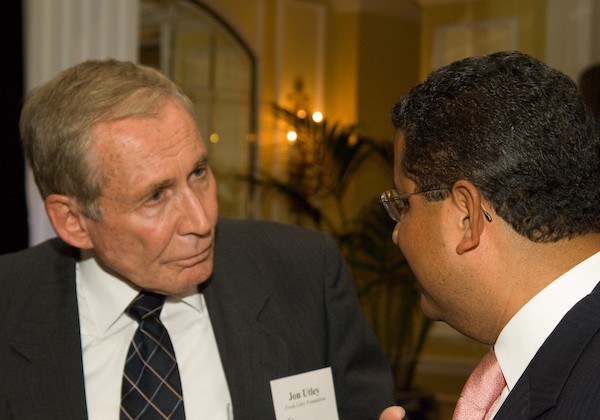
He had a talent for business. During his work in Latin America, he learned that, as a foreigner going to work in Colombia, he could bring a refrigerator and not pay the typically huge tariffs. He estimated he paid $400 to $500 for a top-of-the-line refrigerator and sold it for $1,100 within days. By chance, he found a small plane for $1,300. After learning how to fly and enjoying two years of fun, he had a movie-like accident, hitting a building and almost losing his life.
He recalled waking up the second day in the hospital:
It was a misty morning. I was very groggy and I heard the most beautiful singing of hymns. My first thought was, “Wow! this is it,” but I gradually awoke with pain reminding me that I was still very much alive. I was in a Catholic clinic and for about a week I awoke every morning to the wonderful singing of the nuns, and I thanked God that I was still alive and recovering.
Many of Jon’s friends were Catholics, like me. Part of this had to do with our anti-communism. “Almost the only large anti-Communist organization in the 1940s and early 1950s was the Catholic Church, and my mother had many supporters among the Catholics,” he wrote. Later, he was pleased that Pope John Paul II and others in the Catholic Church “were almost the only major figures against both wars on Iraq.”
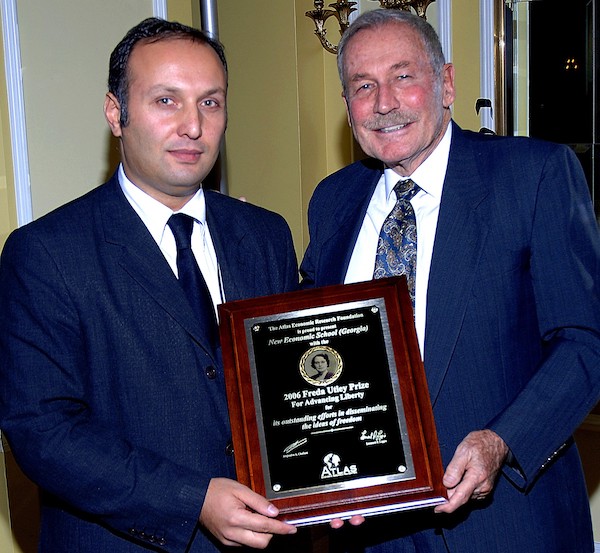
Jon was active in the struggle against communism in Latin America. But once that battle cooled down, he became concerned about war and the role that the United States has played in recent wars. This reflection helps understand his position:
So much of my life was related to wars, revolutions, terrorism and their aftermaths. Germany’s destroyed cities have often been a vision or thought going through my mind ever since I was a student there taking short cuts through bombed-out city blocks. Even today, as I go to sleep, at least once a week I thank God that I am safe, not hungry, dry, warm and secure about tomorrow and the week after.
A free economy was also very important to Jon, but he disliked dogmatism in this sphere, as well. He saw the private sector as the prime mover of a free society. During the 2008 financial crisis, he was in favor of temporary government support to the private sector, especially when the companies were not the source of the problem. He was frustrated when he saw that few if any in elite libertarian circles had any idea of the impact of “mark to market” accounting rules. He favored free trade, but as publisher of The American Conservative, he could co-exist with those who favored a less open economy.
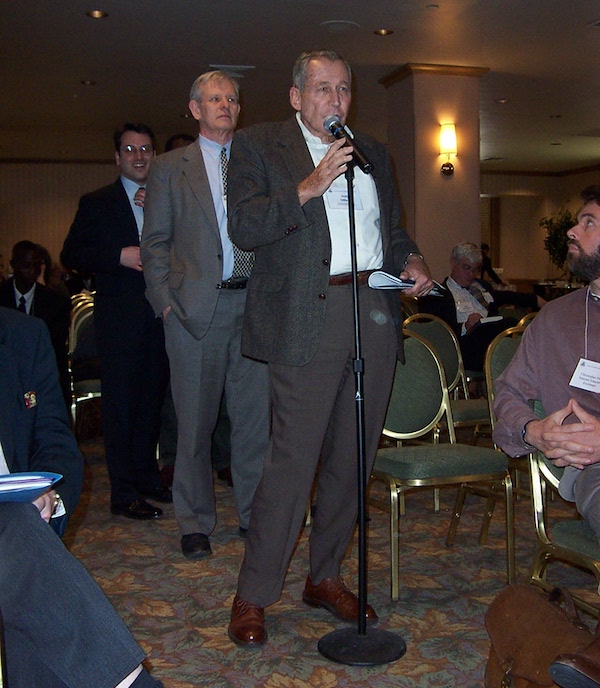
In the same way that he annoyed many libertarians by supporting the Troubled Asset Relief Program (TARP), Jon annoyed many conservatives who favored the wars in Iraq. He wrote extensively on the subject:
It was often a lonely fight, but I knew I was one of the few conservatives with credentials, financial independence and the ability to explain strong reasons for not going to war. If God gave me those abilities and strengths, then I felt bound to use them. At another time when traveling to northern Russia to find out about the fate of my father, executed in the labor camps, a newspaper editor in a Russian city asked me if I wanted to find out about the people who killed my father, if I wanted to seek justice against them. “No,” I replied instinctively, “‘Vengeance is mine, sayeth the Lord.’” I had known people consumed with wanting vengeance and I knew how self-destructive it could be.
His beautiful wife of 57 years, Ana María (who was born in Peru), and their two sons will decide how much more of Jon’s movie-like life will be told in the future. Those of us who shared adventures, boardroom discussions, ideas, and even problems with him will always regard Jon Basil Utley warmly in our memory.
(Main photo: Jon Basil Utley, Yushi Mao, and Acton Institute co-founder Kris Mauren.)
